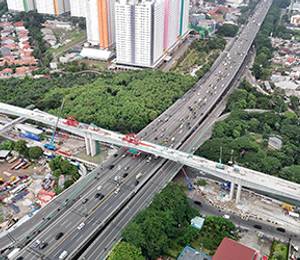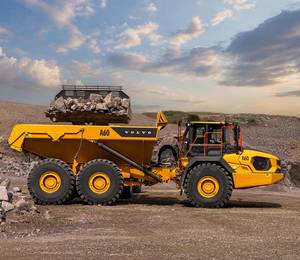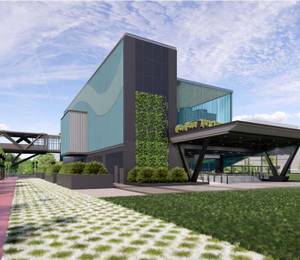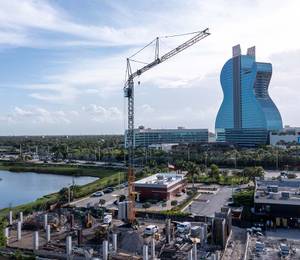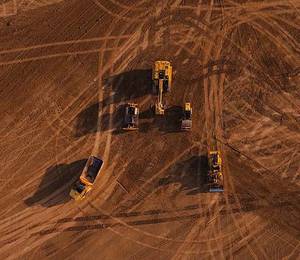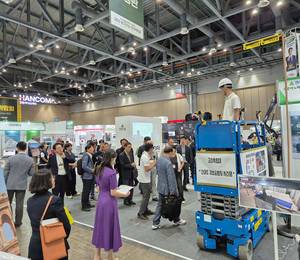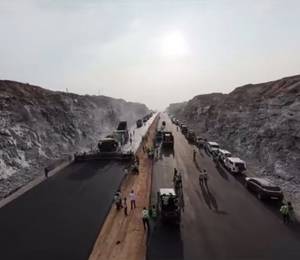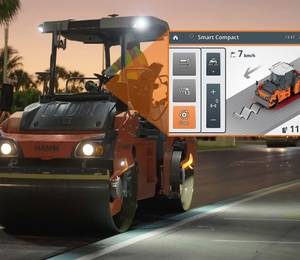Hyundai Construction Equipment (HCE) has developed the HW155H concept wheeled excavator, powered by a hydrogen fuel cell. This 14-t machine will offer eight hours of operation with a 20-minute refuelling time, said the company.
HCE started development of a hydrogen fuel cell-powered driveline in 2020, having signed a Memorandum of Understanding with Hyundai Motors and Hyundai Mobis at its Mabuk Research Centre in Yongin-si, Gyeonggi-do, South Korea. The three companies committed to develop a hydrogen fuel cell to power forklifts and medium/large excavators over the coming years.
Unlike a conventional wheeled excavator, where a diesel engine drives a hydraulic pump to power the machine, the hydrogen excavator has a fuel cell mounted in the rear of the upperstructure that creates electrical energy. This is used to power the hydraulic pump, to drive the machine in the normal way.
The fuel cell relies on a chemical reaction between the stored hydrogen and oxygen that is present in the air. The fuel cell stack generates electrical energy from this reaction, with an inverter converting this energy into usable electrical power. The only emission from the fuel cell stack is water, a combination of the hydrogen and oxygen. When the hydrogen is produced using renewable energy, such as offshore wind, this creates an incredibly low-carbon powertrain.
The hydrogen is stored on the right-hand side of the excavator, opposite the operator’s cab, in high-pressure tanks. This technology is already in use in the passenger bus and commercial vehicle business. Hyundai has been supplying fuel cell-powered road trucks to customers in Switzerland for the last two years. These trucks run on green hydrogen created from hydropower or renewable energy, resulting in a zero-carbon driveline.
“The development of the first excavator powered by hydrogen is very exciting, as we work towards a carbon-free world,” said Gert Peeters, product manager at HCE Europe. “Over the coming months, HCE will continue to develop and further refine this technology and thereby pursue our goal to lead the transition into a zero-carbon future. While great progress has already been made in the development of electric vehicle technology, there is a risk that we overlook hydrogen as a practical, immediate solution to reduce emissions and improve air quality.
“Our projections show that fuel-powered vehicles will be more cost-effective than battery-electric or diesel-powered vehicles in the future. We at Hyundai Construction Equipment are convinced that hydrogen will be at the forefront of renewable energies in the long term. We want to exploit this potential and make it available to users in practice-oriented solutions.”
Bauma booth: FM.813A

